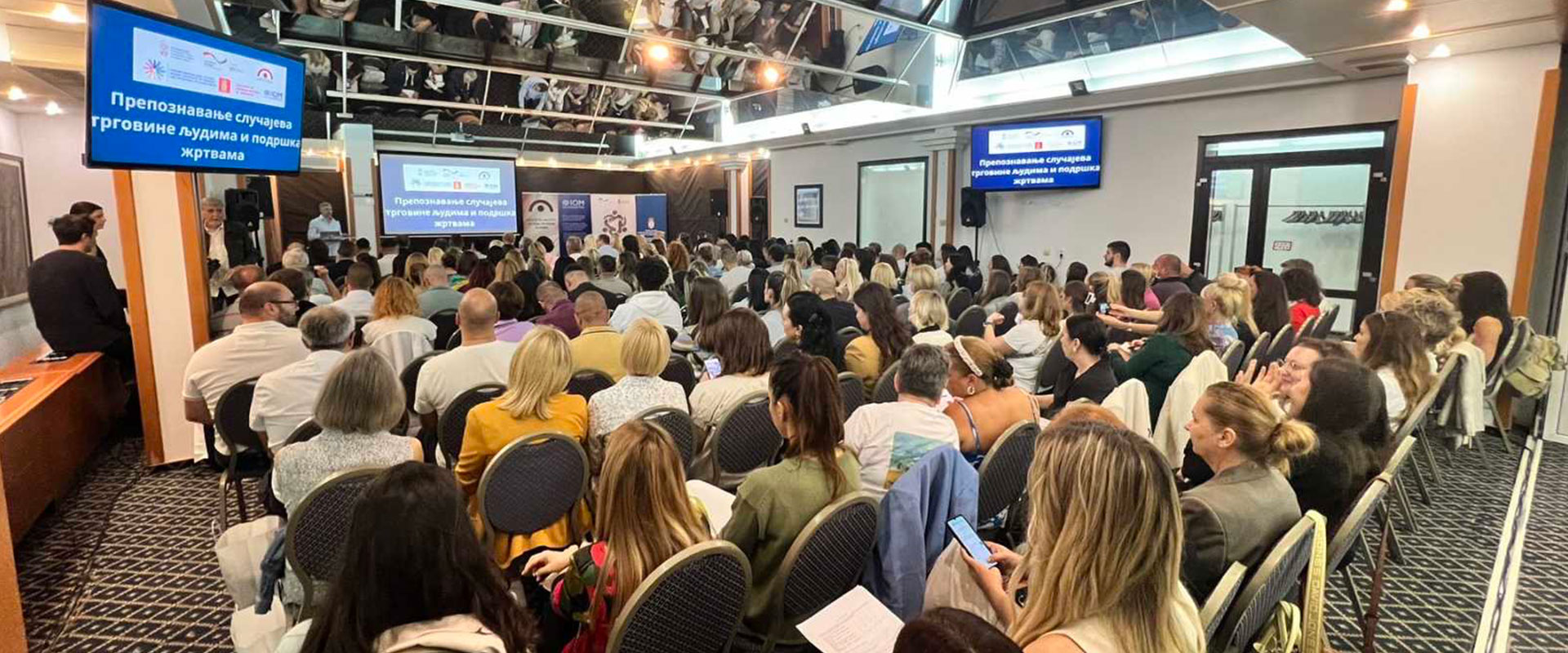On the World Day Against Trafficking in Human Beings, a dedicated training session for more than 190 attendees was held in Belgrade, marking an important step forward in the national effort to combat human trafficking and support victims.
The training brought together representatives from centers for social work, residential institutions, social service providers, judiciary, police, healthcare, education, and the civil sector from the City of Belgrade and all City municipalities. Organized by the Ministry of Labor, Employment, Veterans and Social Affairs and the Center for the Protection of Victims of Human Trafficking, with the support of German Development Cooperation, through GIZ, and IOM, the session focused on strengthening the capacity of frontline professionals to recognize and assist victims of trafficking.
Participants had the opportunity to gain new insights and practical tools to enhance their ability to identify potential cases and respond effectively. A notable part of the training was the presentation of a digital application developed by IOM, designed to support responsible institutions in risk assessment and reporting.
This session is part of a broader initiative – 25 regional trainings planned across Serbia – aiming to reach over 1,000 professionals from various sectors. The goal is to equip key actors, mainly from the social protection system, with the knowledge and skills needed for early identification, victim-centered support, and effective prevention, grounded in a human rights-based and anti-discriminatory approach.
Trafficking in human beings, especially women and children, is a global issue. It equally affects the post-conflict countries that are in the period of economic and social transition, as the industrially developed countries. Human trafficking, as a criminal offence, is one of the most severe criminal offences against humanity. Local institutions often lack the resources and expertise to recognize trafficking cases effectively, which results in delayed assistance for victims. Civil society organizations have been pivotal in victim identification and long-term support but often operate with limited funding and resources. An important tool in combating and preventing trafficking in human beings is raising awareness around signs, causes and consequences of trafficking.
While Serbia has made valuable steps in establishing a strong legal framework for combating trafficking in human beings, there are still challenges, particularly in early detection and prevention. Following recommendations in the TIP1 report for Serbia from 2024 stating that there is a need for improving the training of employees in the state sector to help victims and refer them to other services as well as GRETA2 report for Serbia for 2023, that recommends organizing a training for employees in Centers for social work, we decided to join forces and to organize the support to the system of social protection that has been missing.
The set of regional trainings that will cover all cities and municipalities in Serbia represents a very important step in bridging the gap between legislative achievements and the lived realities of potential and real victims of human trafficking across Serbia. Intersectoral cooperation and integrated approach that bring all relevant actors together in looking at the problem from all angles and with a focus on each specific victim is the key and the starting point that should lead us to sustainable change.
1 The Trafficking in Persons Report (TIP Report) is the U.S. Government’s principal diplomatic tool to engage foreign governments on human trafficking. It is also the world’s most comprehensive resource of governmental anti-trafficking efforts and reflects the U.S. Government’s commitment to global leadership on this key human rights and law enforcement issue.
2 The Group of Experts on Action against Trafficking in Human Beings, more commonly known as GRETA, is the monitoring mechanism on human trafficking established by the Council of Europe Convention on Action against Trafficking in Human Beings in Article 36).








